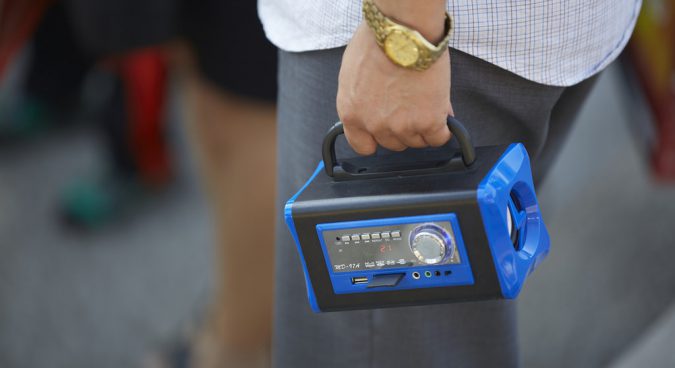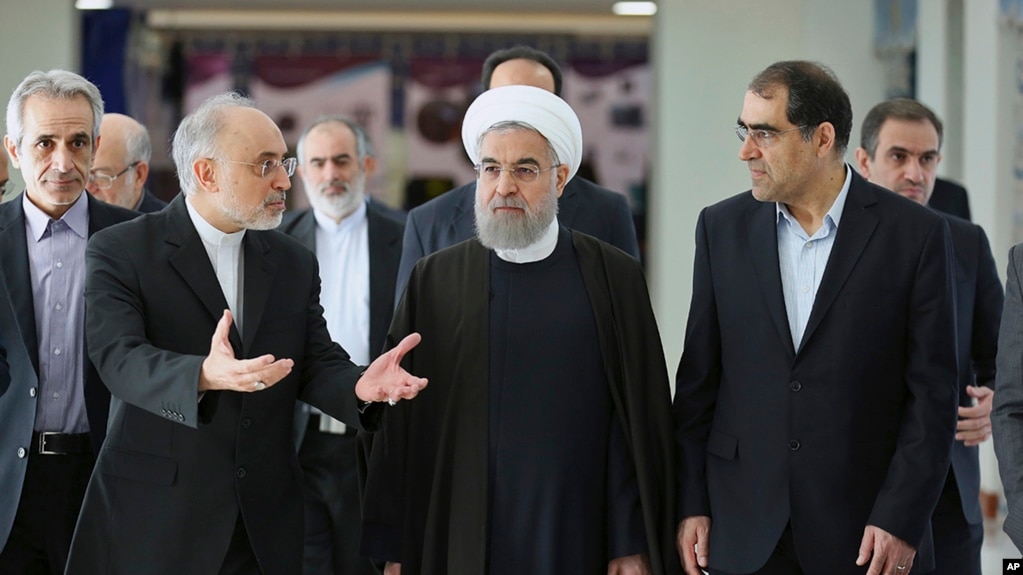
BBC launches Korean language service covering North Korea
DPRK government may already be blocking some of the short-range frequencies, however
September 25th, 2017
The
British Broadcasting Service (BBC) began its Korean language programming
on Monday, an announcement from the UK’s national broadcaster reads,
and will transmit news and radio to the entire Korean peninsula.
Its Korean language programming forms part of 11 new foreign language services that the BBC called the biggest expansion of its World Service since the 1940’s, with £289 million (USD$389,514,200) invested in the project.
“BBC Korea will be reporting a fair and impartial news based on the tradition the BBC World Service has established,” Francesca Unsworth, BBC World Service director said in the article announcing the new programming.
The new Korean language service will broadcast 30-minute long programs for a period of three hours on shortwave frequencies and one hour on medium wave frequencies per day.
According to the article accompanying the launch, the shortwave service will begin at 15:30 (GMT) while the medium wave broadcast will start at 16.30 (GMT). The programming will cover current events, the economy, sports, and culture.
While the BBC article did not explicitly mention the DPRK, it also gave broadcasting times in North Korea’s Pyongyang time, which is 30 minutes behind Seoul.
The North Korean government strictly controls information flows into the country, and already blocks some frequencies used by other radio broadcasters like Voice of America, Radio Free Asia, and Free North Korea radio, among others.
It’s not clear how easily the frequencies that BBC will broadcast on can be picked up in the DPRK, however, said one expert familiar with radio in the North.
“Both 5810 and 9940 shortwave frequencies are jammed right now,” Martyn Williams, author of the North Korea Tech website told NK News, who also posted an example of the jamming on YouTube. “1341 mediumwave was also on air although I could not determine if there was jamming.”
“The jamming is strong, so it obliterates the signal even in Seoul,” Williams added, saying that he was able to tune into a remote South Korea-based receiver to test reception from San Francisco.
Former Ambassador Robert King, the U.S. Special Envoy for North Korean Human Rights, said in 2015 that an estimated 30 percent of North Koreans are tuning into foreign radio broadcasts, adding they are considered much more effective than more high-profile attempts to breach the information blockade, such as sending balloons across the border.
North Koreans can tune into foreign broadcasts via radio sets purchased on the black market or government issued radios that have been tampered with to pick up non-government frequencies, while some North Koreans have also built their own radios to pick up external information.
Edited by Oliver Hotham
Its Korean language programming forms part of 11 new foreign language services that the BBC called the biggest expansion of its World Service since the 1940’s, with £289 million (USD$389,514,200) invested in the project.
“BBC Korea will be reporting a fair and impartial news based on the tradition the BBC World Service has established,” Francesca Unsworth, BBC World Service director said in the article announcing the new programming.
The new Korean language service will broadcast 30-minute long programs for a period of three hours on shortwave frequencies and one hour on medium wave frequencies per day.
According to the article accompanying the launch, the shortwave service will begin at 15:30 (GMT) while the medium wave broadcast will start at 16.30 (GMT). The programming will cover current events, the economy, sports, and culture.
While the BBC article did not explicitly mention the DPRK, it also gave broadcasting times in North Korea’s Pyongyang time, which is 30 minutes behind Seoul.
The North Korean government strictly controls information flows into the country, and already blocks some frequencies used by other radio broadcasters like Voice of America, Radio Free Asia, and Free North Korea radio, among others.
It’s not clear how easily the frequencies that BBC will broadcast on can be picked up in the DPRK, however, said one expert familiar with radio in the North.
“Both 5810 and 9940 shortwave frequencies are jammed right now,” Martyn Williams, author of the North Korea Tech website told NK News, who also posted an example of the jamming on YouTube. “1341 mediumwave was also on air although I could not determine if there was jamming.”
“The jamming is strong, so it obliterates the signal even in Seoul,” Williams added, saying that he was able to tune into a remote South Korea-based receiver to test reception from San Francisco.
Former Ambassador Robert King, the U.S. Special Envoy for North Korean Human Rights, said in 2015 that an estimated 30 percent of North Koreans are tuning into foreign radio broadcasts, adding they are considered much more effective than more high-profile attempts to breach the information blockade, such as sending balloons across the border.
North Koreans can tune into foreign broadcasts via radio sets purchased on the black market or government issued radios that have been tampered with to pick up non-government frequencies, while some North Koreans have also built their own radios to pick up external information.
Edited by Oliver Hotham
Featured Image: by nknews_hq on 2015-09-09 15:14:11

